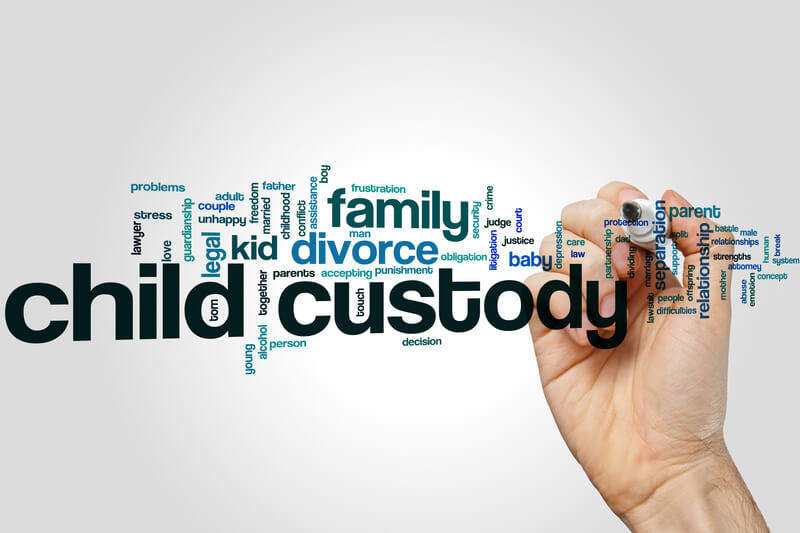Child custody arrangements become central to everything you do. However, life doesn’t stand still after the agreement is in place. Changes to your circumstances or your children can make it necessary to revisit the terms.
This article explores the scenarios that might lead you to reconsider your custody order. If you have considered a change recently, read on to equip yourself with valuable knowledge and insights.
What are Child Custody Arrangements?
Custody arrangements are court orders for the control and responsibility of children. The guiding principle is whatever is in the best interests of the child. Consequently, they deal with these three vital concerns:
- Where the children live
- How decisions regarding the child will occur
- Visitation rights of the noncustodial parent
There are different types of child custody, and each has distinct parameters. These are typically laid out by a professional in a child custody evaluation. Sole custody means that only one parent makes decisions, and the child resides primarily with this parent. On the other hand, joint custody allows both parents to share decision-making authority. Moreover, the child may divide their time between residences.
Legal custody refers to the right to make significant decisions within these categories. Usually, the most relevant and immediate concerns are education, health, and religion. In contrast, physical custody pertains to where the child lives day-to-day.
When to Consider Modifying Child Custody Arrangements
The following sections deal with the situations where a court may agree to modify your custody agreement. This list is not comprehensive, but it covers the most common justifications. You can also learn how this could impact your marital debts.
Significant Changes in Circumstances
A significant change in circumstances can warrant the modification of a child custody arrangement. Additionally, these situations should be substantial enough to justify an adjustment. Courts generally look for events they could not anticipate at the time of the original order.
Examples of qualifying incidents may include the following:
- Relocation. See: child custody and relocation: legal considerations and best practices
- Changes in employment or income, which could also affect child support obligations
- Remarriage
- Drastic changes the health of either parent or child
Child’s Preference
A child’s preference might also lead to a modification in the custody arrangement. As children grow and mature, their needs and wishes can change. Consequently, courts often take these preferences into account.
However, a child cannot choose which parent they want to live with most of the time. The court will consider several factors first.
The child’s age and maturity level are crucial. Older and more mature children are generally given more weight in their preferences. Nonetheless, the judge will also consider the reasons for the child’s choice. For instance, picking one parent who imposes fewer rules does not carry much weight. But a selection based on the child’s adjustment to school and community might.
Noncompliance with the Current Custody Arrangement
Persistent noncompliance with the terms of the current custody arrangement also justifies a change. If one parent consistently breaches the custody agreement, the judge will be more amenable to a new order.
Courts take these breaches seriously, as they disrupt the child’s routine and may harm relationships. Examples of insubordination may involve one or more of the following:
- Denying visitation rights
- Failing to adhere to schedules
- Interfering with the other parent’s relationship
- Making unilateral decisions about the child’s upbringing
Evidence of Abuse or Neglect
Finally, and most importantly, the child’s safety is always the primary consideration. If there’s evidence of abuse or neglect, courts will act swiftly to modify the existing custody arrangement.
Abuse can include physical, emotional, or sexual abuse. Meanwhile, neglect involves failing to provide for the child’s basic needs. Judges typically require substantial evidence, such as police reports or medical records.
Reasons to Consider Modifying Child Custody Arrangements
The courts will give a modification that can demonstrably improve a child’s situation with serious consideration. For instance, circumstances that provide more stability or improved living conditions are compelling. A parent might have moved into a better home in a safer neighborhood. Alternatively, they may have married a supportive spouse and created a more stable environment.
Maintaining fairness between parents is another crucial factor. A judge may choose to restore balance if things become unfair or imbalanced. It’s important to note that fairness does not necessarily mean equal time. Rather, it refers to respecting both parents’ rights and abilities to maintain a meaningful relationship.
Consult with a Local Attorney About Child Custody Arrangements
Child custody arrangements are unique and have their own challenges. This guide has offered an overview of when and why you might consider modifying a custody arrangement. However, it can’t cover every eventuality.
Legal guidance can be invaluable in these situations. Ask us for a referral to a local family attorney who can help you navigate the legal intricacies. You only have to complete a quick online form or call (866) 345-6784.

